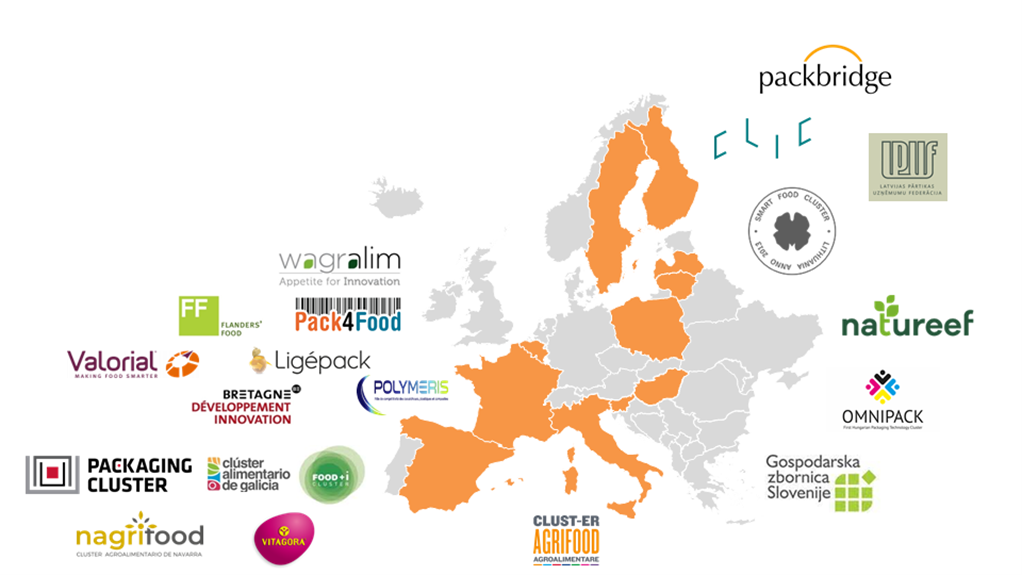European Food Packaging Partnership – Background
In 2020, 20 million tons of plastic packaging were produced in Europe, of which approximately 40% or 8 million tons for food packaging. In 2018, however, recycling rates of plastic packaging waste in Europe ranged between 26 and 52%. Circular economy and circular principles are highly promoted by the European Commission as a holistic solution to reduce the environmental footprint of packaging. In the European Plastics Strategy, ambitious targets were set to address the problems and challenges of packaging throughout their entire value chain, taking into account the entire life cycle (e.g. 70% of all packaging waste needs to be recycled by 2030). However, much remains to be done to achieve these goals in time.
While the concept of circular food packaging has been taken up by policy and industrial initiatives at European and national level (i.e., Green Deal, Horizon2020, Horizon Europe), its implementation remains limited due to the high degree of required cross-chain collaboration. To overcome the implementation barriers of sustainable food packaging, joint forces via collaborations along the whole food packaging value chain are needed.
Objectives
The objective of the European Food Packaging Partnership is to establish a European collaboration between clusters and cluster organizations representing the whole food packaging value chain (e.g., food and packaging companies, packaging machine suppliers, sorting and recycling companies, and other relevant stakeholders), research and technology organisations (RTO’s) and consumer organisations.
The partnership will create a trust zone between the involved parties, facilitating the exchange and building of know-how along the whole food packaging value chain, and thus accelerating the introduction and implementation of new sustainable and smart food packaging technologies and innovations in the food packaging industry.
The European Food Packaging Partnership will notably be linked in the work of 4Recycling ecosystem in the future. CLIC participation to the partnership will strengthen the collaboration and information exchange at international level and boost the project preparations in the future.

